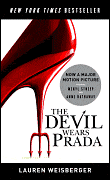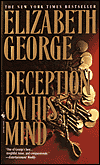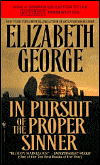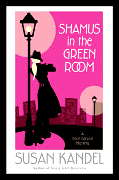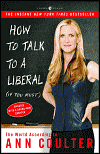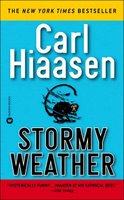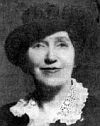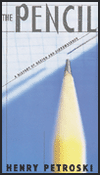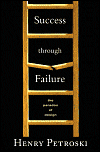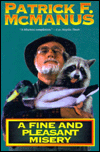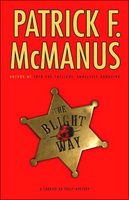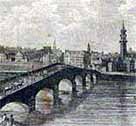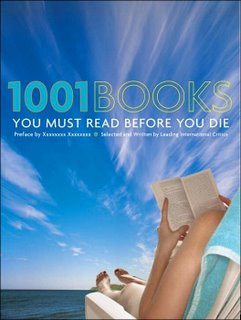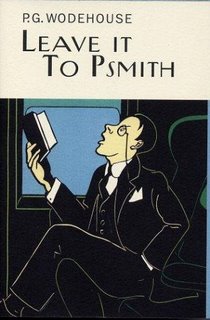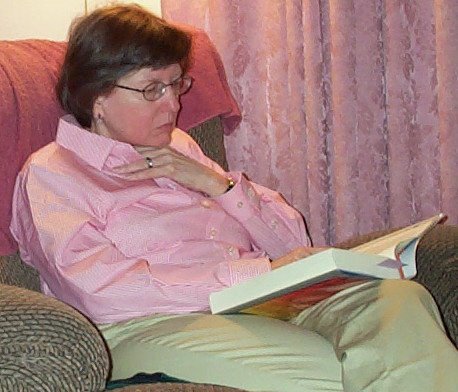The Latest from Publisher’s Weekly
Some interesting new books are announced in yesterday’s Publisher’s Weekly, including five with red stars, which are an indicator of books “of outstanding quality” in the opinion of PW.
The Light of Evening, by Edna O'Brien. Houghton Mifflin, $25 (288p) ISBN 0-618-71867-2
This is a story about a woman in a nursing home and her ambivalence about her daughter’s escape from Ireland to 1920s Brooklyn, her life there, and her return to Ireland. “Gorgeous stream-of-consciousness” says PW. To be released in October.
The Texicans, by Nina Vida. Soho, $23 (304p) ISBN 1-56947-434-6
In the middle of the 19th century cast of characters includes the widow of a Texas Ranger who goes to live with the Comanches, an Alsatian immigrant, a Missouri schoolteacher interact to act out the history of the times. PW calls it luminous, dramatic, radiant, vibrantly atmospheric, and emotionally dense. To be released in October.
Half of a Yellow Sun, by Chimamanda Ngozi Adichie. Knopf, $24.95 (416p) ISBN 1-4000-4416-2
Says PW: “When the Igbo people of eastern Nigeria seceded in 1967 to form the independent nation of Biafra, a bloody, crippling three-year civil war followed. That period in African history is captured with haunting intimacy in this artful page-turner from Nigerian novelist Adichie.” To be released 16 September.
Winter Birds, by Jamie Langston Turner. Bethany House, $12.99 paper (400p) ISBN 0-7642-0015-1
PW: “With this fictional octogenarian's rich reflection on her disappointing life, Christy Award–winner Turner pens her best novel in years. . . . Turner shows how even the most awkward and imperfect love, care and attention can yield meaningful results.” To be released in September.
The Assassins Gallery, by David L. Robbins. Bantam, $25 (432p) ISBN 0-553-80441-3
This thriller set near the end of WWII begins with a double murder on the beach near Newburyport, Massachusetts and focuses on the killer and the man assigned to solve the murders. PW: “Robbins . . . has an uncanny ability to provide just the right amount of historical detail without overwhelming the plot. This talent, coupled with superior characterization and a masterful, direct writing style will provide thriller lovers with one of their best reads of the year. The powerful climax deserves the term "heart-stopping.” To be released in August.
Unstarred but of interest to those of us who are in the grip of Jasper Fforde’s whimsical fiction is his second Nursery Crime mystery. His first was The Big Over Easy (2005):
The Fourth Bear: A Nursery Crime, by Jasper Fforde. Viking, $24.95 (378p) ISBN 0-670-03772-9
Most of us know Fforde from his Thursday Next series. I haven’t read The Big Over Easy but if it’s as good as this one sunds I may look into this series. The Fourth Bear stars Jack Spratt, DCI of the Nursery crime Division of the Reading [that’s reading, as in reading books] Police Department. He is “a PDR (Person of Dubious Reality), as are most of the characters Jack deals with, including the Gingerbreadman, a notorious killer, and Punch and Judy, a violence prone couple who are also marriage counselors. An alien policeman named Ashley, talking bears, a devoted group of cucumber-growing enthusiasts and an immensely powerful company, Quang Tech, add spice.” There’s nobody out there with an imagination quite like Fforde’s. To be released in August.
These books are all available at http://www.barnesandnoble.com/
